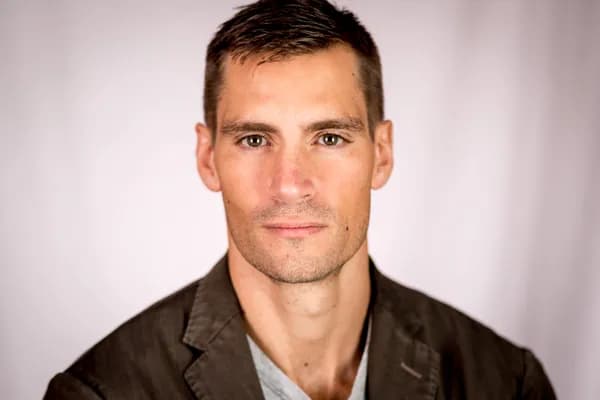Therapy for grief over health losses

Your body changed in ways you never imagined, and the life you expected shifted with it. Maybe you’re living with chronic illness, sudden disability, fertility loss, or a diagnosis that changed your future. You’re grieving the body and life you thought you’d have, while still waking up inside the loss every day. People tell you to be grateful, not realizing you can be thankful to be here and still devastated by what’s gone. This grief is ongoing and often invisible, and it isn’t dramatic or self-pitying. It’s the honest response to a life you didn’t choose. Therapy gives you space to grieve what changed while building a life that still feels meaningful.
Understanding grief for health and bodily losses
The complex nature of health grief
Health grief is ongoing because you’re living inside the loss every day. Your body changed, your abilities shifted, and things that once felt effortless now take planning or aren’t possible anymore. You’re grieving many layers at once: independence, routines, hobbies, intimacy, career paths, and the future you imagined. There’s no clear endpoint. Chronic conditions mean adapting to limits that persist, while progressive conditions bring grief for losses still ahead. This constant adjustment is emotionally exhausting.
The invisibility of many health losses
Many chronic illnesses and disabilities are invisible, which creates another layer of grief. You might look fine while managing pain, fatigue, or cognitive symptoms that shape every part of your life. Others don’t understand why you cancel plans or can’t do what you used to, and comments like “you don’t look sick” minimize your reality. Even visible disabilities bring assumptions and judgment. This lack of understanding can leave you feeling profoundly isolated.
Health loss in Canada
Data from Statistics Canada and the Public Health Agency of Canada.Statistics Canada disability report.
Different types of health losses
Health loss shows up in many ways. Chronic illness brings lifelong changes, sudden disabilities create abrupt upheaval, and progressive conditions involve grieving losses as they unfold. Cancer, chronic pain, infertility, reproductive loss, and mental health diagnoses each reshape daily life and the future you imagined. Physical changes like amputation, paralysis, or sensory loss alter how you move through the world. Aging brings its own shifts in independence. Each experience is unique, yet all involve mourning the body and life you once expected.
The cascading impacts of health loss
Identity and self-concept
Health changes can shake who you believe yourself to be. Losing strength, independence, or cognitive clarity often brings painful questions about identity. You might wonder where your diagnosis fits in your sense of self or struggle with language that feels too limiting or too vague. Rebuilding a self-concept that acknowledges these changes without being defined by them is difficult and deeply personal.
Relationships and social connections
Illness and disability shift relationship dynamics. Friends may drift when you can’t keep up, and partners may step into caregiving roles that change intimacy and connection. Dating becomes complicated by disclosure and stigma. Even supportive family members can misunderstand or overstep. Many people pull back to avoid feeling like a burden, which adds to isolation. Relationships often need to be renegotiated in new and unfamiliar ways.
Practical life disruptions
Health loss affects daily life in concrete ways. Work becomes harder or impossible. Medical costs rise while income falls. You may need housing changes, mobility supports, or help with transportation. Everyday tasks require planning around symptoms, energy, and accessibility. Hobbies, travel, and spontaneity often disappear. These ongoing adjustments are exhausting and add to the emotional weight of health grief.
How therapy addresses grief over health losses
Why specialized grief support helps
Health loss requires support from someone who understands that your grief is real and justified. A specialized therapist knows that “at least you're alive” ignores how much your life has changed. They understand ongoing grief, invisible illness, and the work of adapting to a body or future you didn’t choose. Their role is to help you process these losses while supporting your adjustment to a new reality. They won’t minimize your pain or push toxic positivity. Instead, they validate your grief and recognize your resilience, helping you find ways to live meaningfully even when acceptance feels complicated.
Therapeutic approaches for health loss grief
Grief processing and validation
Your therapist acknowledges that health changes bring real grief for your former body, abilities, independence, and imagined future. You explore what has been lost and how these changes affect your daily life. Unlike grief after death, this grief requires holding loss and adaptation at the same time—mourning what is gone while learning to live with what remains.
Acceptance and commitment therapy
ACT helps you accept difficult realities while building a meaningful life within your current limits. You learn to observe physical and emotional pain without being ruled by it, clarify what matters most, and take small actions aligned with your values. ACT is strongly supported for chronic illness, pain, and disability adjustment.
Identity reconstruction
Health changes alter how you see yourself. Therapy helps you rebuild identity in a way that includes your diagnosis without being defined by it. This involves challenging beliefs tied to productivity or independence and creating a coherent sense of self that honours both your past and your present.
Cognitive behavioural therapy for adjustment
CBT helps challenge thoughts like "my life is over" or "I'm a burden." You develop more balanced perspectives, learn skills for managing anxiety around symptoms or flares, and problem-solve around new limitations. CBT is well supported for adapting to chronic illness and disability.
Trauma processing when needed
Sudden injuries, frightening diagnoses, or invasive procedures can create medical trauma. EMDR or other trauma therapies help reduce the intensity of these memories so you can engage in necessary care and grieve without being overwhelmed by trauma responses.
The journey through health loss grief
Acknowledging losses
Early sessions focus on naming the losses your health change created—often for the first time without being dismissed or told to stay positive. You explore what happened, how your life has shifted, and the emotional and practical impact. Having someone witness these losses without minimizing them brings real relief.
Processing and adapting
Therapy helps you process difficult emotions, challenge unhelpful thoughts, and learn skills for living with health changes. You work on accepting your current body while grieving what’s different, communicating needs, managing medical anxiety, and rebuilding identity. If trauma is part of your story, you address that too. This phase blends grief and adaptation as you find ways to live meaningfully within new limits.
Living with ongoing grief
Over time, grief becomes less overwhelming even if challenges remain. You build skills to manage symptoms, reconnect with values, and create a life that fits your current reality. Grief may resurface during flares or reminders of what you’ve lost, which is normal. Some people continue with occasional check-ins; others return during difficult periods. This grief doesn’t disappear, but it becomes far more manageable with support.
Find a therapist for health loss grief
Choosing the right therapist matters. Each province in Canada has its own regulations, which is why working with a recognized professional can make a real difference in your care. Stellocare takes the uncertainty out of the process by listing only verified therapists you can trust.
The right therapist for you
No therapists found with these specialties in Ontario.
Try selecting a different province.Resources and strategies
Support for health losses
March of Dimes Canada
Provides nationwide programs for people living with disabilities, chronic illness, and mobility loss. Services include peer support, post-stroke programs, independent living support, and caregiver support groups.Find programs.
Arthritis Society Canada
Offers nationwide chronic illness support, including one-to-one counselling, community workshops, pain management groups, and patient education. They support people coping with loss of physical ability and long-term pain conditions.Access support.
Heart & Stroke – Recovery Support
Helps people navigating life after major health events including stroke, heart failure, and cardiac conditions. Provides recovery programs, peer groups, caregiver resources, and rehabilitation guidance.Visit Heart & Stroke support.
Chronic Pain Centre of Excellence
Provides treatment programs, pain-management education, and clinician-guided support for people living with chronic pain. Although veteran-focused, many resources are open to the public or used by provincial care teams.Explore programs.
Canadian Hospice Palliative Care Association
Supports people facing serious illness, major health decline, or loss of functioning. Provides national directories for local support programs, caregiver support, and compassionate community programs.Find local services.
Navigating health loss day to day
Honouring grief while adapting
- Allow yourself to grieve: you don't have to be grateful or positive all the time. It's okay to be angry, sad, or frustrated about limitations. These feelings coexist with coping and don't mean you've given up.
- Acknowledge specific losses: name what you miss—hiking, spontaneity, your former energy level, independence. Vague grief is harder to process than specific acknowledgment of what's different.
- Give yourself permission for bad days: grief and symptoms fluctuate. Days when you're overwhelmed or can't cope well are normal, not failure. Be compassionate with yourself during difficult periods.
Building life within constraints
- Identify what remains possible: focus on capabilities you retain rather than only what's lost. This isn't toxic positivity—it's pragmatically identifying what you can build on.
- Adapt activities you loved: can hiking become shorter walks on accessible trails? Can cooking become supervision and verbal guidance while someone else does physical work? Adaptation isn't the same as before but maintains connection to valued activities.
- Find new sources of meaning: health changes sometimes push you toward activities or connections you wouldn't have discovered otherwise. Stay open to unexpected sources of fulfillment even while grieving what you've lost.
Managing relationships and communication
- Be specific about needs: "I need help with groceries" is clearer than "I need support." People want to help but often don't know how. Direct requests prevent frustration on both sides.
- Set boundaries around unhelpful responses: it's okay to tell people that "everything happens for a reason" or unsolicited medical advice isn't helpful. You can say "I need validation, not solutions right now."
- Find your community: connect with others facing similar losses through support groups or online communities. Shared experience reduces isolation and provides understanding others can't offer.
Symptom tracking apps like Bearable or Flaredown help identify patterns and prepare for medical appointments. Support apps like The Mighty connect you with others. Meditation apps like Insight Timer have chronic illness-specific content. Use tools that reduce burden rather than add to it.
Questions about grief over health losses
Am I allowed to grieve when I'm still alive?
Yes. You’ve lost real things: health, abilities, independence, plans, even though you’re still here. Gratitude for being alive can coexist with grief for the life you expected. Mourning those losses isn’t dramatic or ungrateful. It’s human.
When will I accept my condition?
Acceptance isn’t a single moment. It rises and falls. Some days you adjust well; other days you feel the loss all over again. Acceptance means acknowledging reality while building a meaningful life within it. It doesn’t mean being happy about what happened or giving up.
How do I explain my limitations to others?
You don’t owe everyone an explanation. For people who matter, be specific and clear: “I can walk for about 15 minutes before I need a break.” Remind them that good days don’t mean you’re cured and bad days aren’t failures. Some will understand, others won’t—that’s about them, not you.
Will I ever feel like myself again?
Your sense of self shifts with health changes. You won’t return to the exact person you were, but many people eventually feel like themselves again in a new way. Therapy helps you integrate these changes and rebuild identity without losing the core of who you are.
How do I handle people's toxic positivity?
“Stay positive” and “everything happens for a reason” usually come from discomfort, not malice. You can say, “I know you’re trying to help, but what I need is acknowledgment that this is hard.” Set boundaries or limit what you share with people who can’t offer real support.
Related concerns
References
- Statistics Canada. Canadian Survey on Disability, 2017. Retrieved from https://www150.statcan.gc.ca/n1/daily-quotidien/181128/dq181128a-eng.htm
- Veehof, M. M., Trompetter, H. R., Bohlmeijer, E. T., & Schreurs, K. M. (2016). Acceptance-and mindfulness-based interventions for the treatment of chronic pain: A meta-analytic review. Cognitive Behaviour Therapy, 45(1), 5-31. Retrieved from https://pubmed.ncbi.nlm.nih.gov/26818413/
- Charmaz, K. (1995). The body, identity, and self: Adapting to impairment. The Sociological Quarterly, 36(4), 657-680.
- Stroebe, M., & Schut, H. (2010). The dual process model of coping with bereavement: A decade on. OMEGA-Journal of Death and Dying, 61(4), 273-289.
- The Mighty. Health stories and community. Retrieved from https://themighty.com/
- Bernhard, T. (2010). How to Be Sick: A Buddhist-Inspired Guide for the Chronically Ill and Their Caregivers. Wisdom Publications.
- Livneh, H., & Antonak, R. F. (1997). Psychosocial Adaptation to Chronic Illness and Disability. Aspen Publishers.
About Stellocare
Stellocare is a Canadian platform where you can find the best fit therapist for you. Search the right thperaists now by asking our AI, browsing our list, or finding our social workers for personal referral.

KATHY MOSBAUGH
Registered Psychotherapist (ON)

Jonathon Zarb
Registered Psychotherapist (ON)

Rebecca Sun
Registered Clinical Counsellor (BC)

Lisa Davis
Registered Social Worker (ON)

Jinny Hong
Registered Psychologist (ON)

Laura Prikosovich
Registered Social Worker (ON)

Stefania Bonanno
Registered Social Worker (ON)

Justin Appler
Registered Psychotherapist (Qualifying) (ON)

Sze Nga Cecilia Au Yeung
Registered Social Worker (ON)

Natasha Elliott
Registered Psychotherapist (ON)

Christine Chambers
Registered Psychotherapist (ON)

Robyn Floyd
Registered Psychotherapist (ON)

Katherine Collins
Registered Psychotherapist (Qualifying) (ON)

Cameron Whatram
Registered Clinical Counsellor (BC)

Kemelle Deeble
Registered Psychotherapist (Qualifying) (ON)

Renée LaJoie
Counselling Therapist (AB)

Daniella Sanchez
Registered Social Worker (ON)

Amelie Rossignol
Counselling Therapist (AB)

Mat Dean
Registered Psychotherapist (ON)

Chelsea Almeida
Counselling Therapist (PE)

KATHY MOSBAUGH
Registered Psychotherapist (ON)

Jonathon Zarb
Registered Psychotherapist (ON)

Rebecca Sun
Registered Clinical Counsellor (BC)

Lisa Davis
Registered Social Worker (ON)

Jinny Hong
Registered Psychologist (ON)

Laura Prikosovich
Registered Social Worker (ON)

Stefania Bonanno
Registered Social Worker (ON)

Justin Appler
Registered Psychotherapist (Qualifying) (ON)

Sze Nga Cecilia Au Yeung
Registered Social Worker (ON)

Natasha Elliott
Registered Psychotherapist (ON)

Christine Chambers
Registered Psychotherapist (ON)

Robyn Floyd
Registered Psychotherapist (ON)

Katherine Collins
Registered Psychotherapist (Qualifying) (ON)

Cameron Whatram
Registered Clinical Counsellor (BC)

Kemelle Deeble
Registered Psychotherapist (Qualifying) (ON)

Renée LaJoie
Counselling Therapist (AB)

Daniella Sanchez
Registered Social Worker (ON)

Amelie Rossignol
Counselling Therapist (AB)

Mat Dean
Registered Psychotherapist (ON)

Chelsea Almeida
Counselling Therapist (PE)

